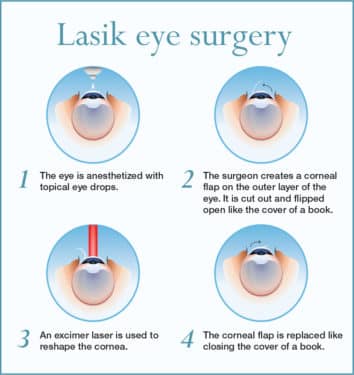Successfully Coping With Glaucoma: Techniques For Symptom Management
Successfully Coping With Glaucoma: Techniques For Symptom Management
Blog Article
Material Writer-Smart Borup
To effectively take care of glaucoma symptoms, you need to embrace a detailed method. Ensuring you stick to your recommended drug program is vital, yet there's even more to it than simply that. Lifestyle adjustments play a pivotal role in symptom control, yet there's one more layer to think about. Stay tuned to uncover a crucial facet that can substantially influence your glaucoma management journey.
Medicine Monitoring
When managing glaucoma signs successfully, you must prioritize drug management. Consistent and timely use of prescribed eye declines or oral medications is vital in controlling eye pressure and avoiding additional damages to your optic nerve. It's necessary to follow the dosage guidelines given by your eye care specialist to make sure the drugs work.
Bear in mind to set up a regular for taking your medicine to prevent missing out on dosages. Take into consideration utilizing reminders such as alarms or associating the drug timetable with everyday tasks like meals to help you remain on track. If you experience any side effects or troubles with your medication, don't hesitate to consult your doctor. They can adjust the dosage or suggest different medications to far better suit your requirements.
Be aggressive in your strategy to drug administration by tracking your refills and organizing routine exams with your eye treatment service provider. By remaining organized and informed concerning your medication program, you can successfully manage your glaucoma signs and symptoms and preserve your vision.
Way of life Adjustments
To properly handle your glaucoma signs and symptoms, integrating way of living adjustments is vital for maintaining general eye health. https://www.dovepress.com/comparison-and-analysis-of-fda-reported-visual-outcomes-of-the-three-l-peer-reviewed-fulltext-article-OPTH is to focus on normal workout. Taking part in exercise can aid improve blood flow to the optic nerve and minimize intraocular stress, both of which are advantageous for taking care of glaucoma.
Furthermore, keeping a healthy diet rich in antioxidants, such as fruits and vegetables, can sustain eye health and wellness by lowering oxidative anxiety.
https://lasiknearme31986.theideasblog.com/28693611/discover-the-future-of-cataract-surgical-treatment-modern-technology-and-witness-the-ingenious-progression-that-has-the-prospective-to-change-person-therapy-and-boost-visual-outcomes is to avoid smoking and limitation alcohol consumption. Smoking cigarettes has been connected to an increased risk of creating glaucoma and can aggravate the condition for those currently diagnosed. Alcohol intake, specifically in excess, can also bring about enhanced eye stress, so moderation is key.
In addition, practicing stress-reducing techniques like meditation or yoga exercise can aid reduced intraocular pressure and boost total wellness. Getting a sufficient amount of rest is also important for managing glaucoma symptoms, as lack of rest can result in raised eye stress.
Surgical Options
Thinking about medical choices for managing glaucoma signs can be a vital step in your therapy strategy. When medications and various other treatments have not effectively managed your glaucoma, surgical treatment may be suggested to lower intraocular stress and stop additional vision loss. There are various sorts of surgical procedures offered, each with its own benefits and risks.
One typical medical choice is trabeculectomy, where a new drain channel is developed to assist liquid drain effectively from the eye, reducing stress. Another choice is a minimally intrusive glaucoma surgical treatment (MIGS), which uses tiny tools to boost the eye's natural drainage system. Read the Full Content is a treatment that uses a laser to boost drainage via the trabecular meshwork.
While surgery can efficiently reduce intraocular pressure and reduce the progression of glaucoma, it's vital to review with your ophthalmologist the most ideal medical choice based upon your details condition and medical history. Bear in mind that regular follow-ups post-surgery are critical to keep an eye on the effectiveness of the treatment and make sure the most effective possible results for your eye health and wellness.
Conclusion
To conclude, efficiently managing glaucoma signs requires a comprehensive strategy. This consists of drug management, lifestyle adjustments, and considering surgical choices when necessary. For example, Sarah, a 55-year-old patient with advanced glaucoma, saw substantial improvement in her signs and symptoms after undertaking minimally invasive glaucoma surgical treatment (MIGS) following unsuccessful medication monitoring.
By functioning carefully with her eye doctor and making necessary way of living adjustments, Sarah was able to much better regulate her condition and maintain her vision.
